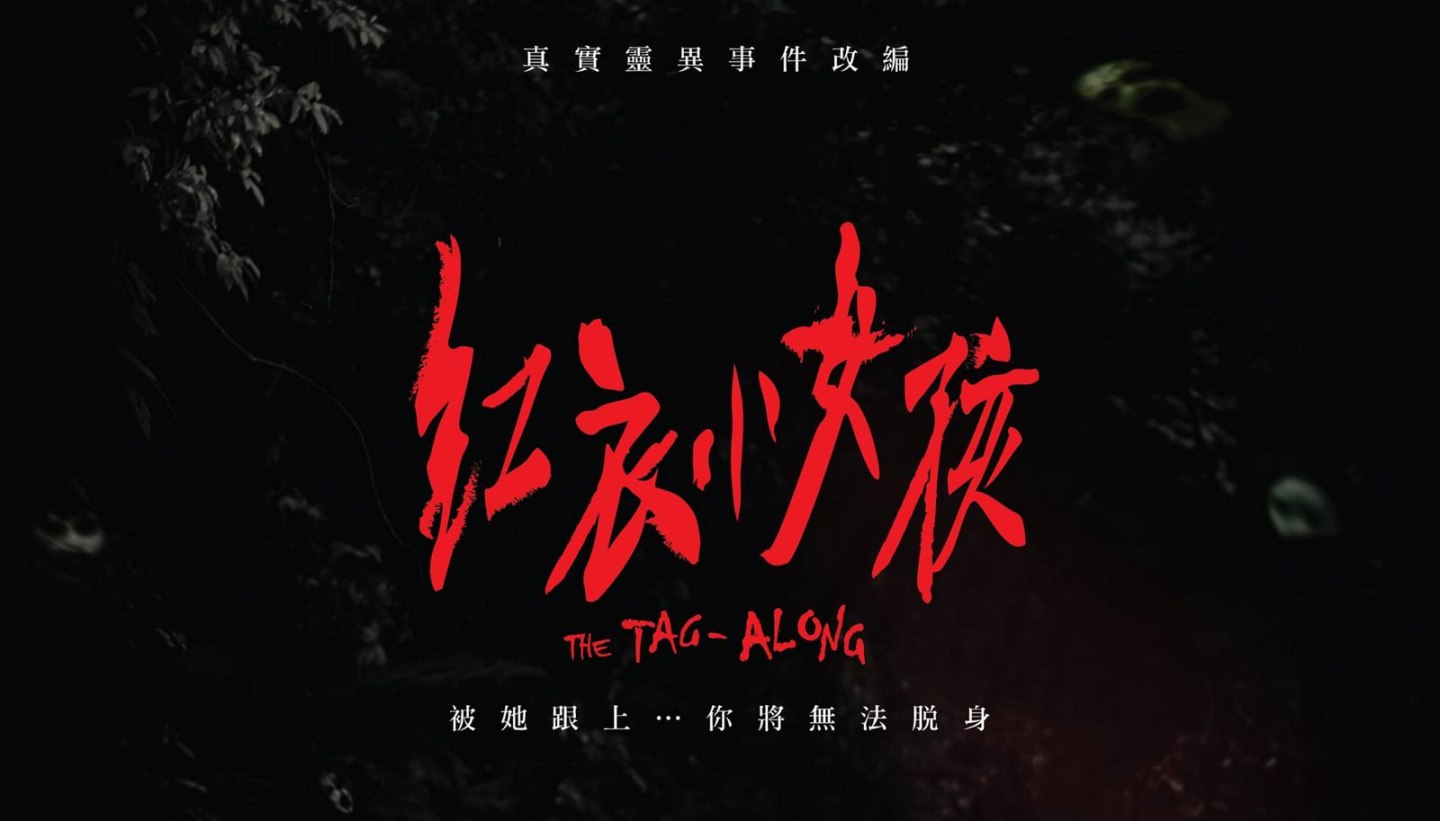 Why are little girls in red dresses such a frequent figure for fear? From the cheerfully naive little red riding hood and her unavoidable association with unscrupulous wolves to the murderous spectres of Don’t Look Now, we don’t seem to be able to abandon our strange anxiety on seeing little girls incongruously alone and distinctively dressed. A little girl in red became a national meme in Taiwan in 1998 after accidentally photobombing an ordinary family out on a mountain hike, notably appearing behind a family member who later passed away though no one was able to remember having seen the little girl on the day. Truth be told, our little girl in red does not actually feature as much as you’d expect in Cheng Wei-hao’s The Tag-Along (紅衣小女孩, Hóng yī Nǚhái), but she does become the embodiment of the “mosien” – an ancient monster appearing in the form of a child or a monkey who bewitches and feeds on guilt.
Why are little girls in red dresses such a frequent figure for fear? From the cheerfully naive little red riding hood and her unavoidable association with unscrupulous wolves to the murderous spectres of Don’t Look Now, we don’t seem to be able to abandon our strange anxiety on seeing little girls incongruously alone and distinctively dressed. A little girl in red became a national meme in Taiwan in 1998 after accidentally photobombing an ordinary family out on a mountain hike, notably appearing behind a family member who later passed away though no one was able to remember having seen the little girl on the day. Truth be told, our little girl in red does not actually feature as much as you’d expect in Cheng Wei-hao’s The Tag-Along (紅衣小女孩, Hóng yī Nǚhái), but she does become the embodiment of the “mosien” – an ancient monster appearing in the form of a child or a monkey who bewitches and feeds on guilt.
Cheng opens in the mountains with an old woman, Shui (Pai Ming-hua), wandering. Shui is subsequently reported missing and much missed by her friend, grumpy grandma Shu-fang (Liu Yin-shang). Everyone seems to be worried that ancient spirits may have dragged her off to the mountains, but Shui does eventually return, albeit not quite as she left. Meanwhile, Shu-fang’s grandson Wei (River Huang) is an overworked real estate agent in a committed five year relationship with radio DJ Yi-chun (Hsu Wei-ning). While Wei is keen to get married and start a family, Yi-chun is not convinced partially for financial reasons but also perhaps because she simply is not ready to give up her individual freedom to become a member of Wei’s family.
Indeed, Yi-chun asks her radio listeners if marriage isn’t “the tomb of love”, but shows no other signs of wanting to break up with Wei only emphasising that she does not envisage marriage as part of her life plan – something later contradicted by a message she scrawled on the back of a photo five years previously. In a touch of disappointing conservatism, The Tag-Along makes Yi-chun its ostensible hero who alone battles against preternatural horror to reclaim her rightful relationships, but frames her mission as a gradual process towards conforming to conventional social norms in which she learns that her qualms over marrying Wei are nothing more than commitment phobic selfishness and pointless guilty self obsession – something which she needs to abandon in order to fulfil her proper role as a woman by marrying and making a home even if she is also allowed to continue her radio career.
Meanwhile Wei, who has a strong desire to start a family of his own precisely in order to forge his own identity, treats his loving granny with contempt and irritation, eventually mortgaging the family home in order to buy a fancy apartment he hopes will help convince Yi-chun that he has the means to marry. Yi-chun, again, is not convinced partially because she fears Shu-fang may think it was all her idea and use it as evidence of her gold digging. The rot has already set in at home. Shu-fang feels sad for Wei who seems to have lost his parents young but also for the burden he feels himself under because the family lost their money, while Wei resents being shackled to an old woman who still cares for him as if he were a child, nagging him about getting married when she herself is one of the obstacles in its way.
Yet “civilisation” is perhaps the force that each of them are fighting, living as they do in ultramodern, always aspirant Taipei. The mountains represent something older and earthier, filled with atavistic passions and the dark fear of the unknown. One of the more supernaturally inclined elderly residents of Wei’s apartment block speculates that the forest spirits are angry with the encroachment of modernity, that persistent tree cutting has destroyed their natural habitat and sent them into the cities in search of souls to devour like foxes hungry for human suffering. Another forest dweller adds that every time a tree is removed, the spirits steal a body to “plant” in its place in an ironic act of restitution. An encounter with dark nature however sends each of our conflicted souls reeling back to the comforts of urbanity, suddenly no longer quite as afraid of the things which frighten them and now convinced that their salvation lies in each other and in repairing the bonds of the traditional family. Socially conservative as it may be, The Tag-Along’s spectres of moral decay are all too real in the increasingly indifferent city plagued by greed and selfishness where competition is key and human feeling merely an afterthought in a rabidly acquisitive society.
The Tag-Along screened as part of the Taiwan Film Festival UK 2019.
Original trailer (English subtitles)

3 comments